COVID Collaboration
Exhaustion leads to innovation
During each pandemic surge, teams were tested.
Exhausted and often feeling underwater, they leaned on each other to do everything they could for patients. Some collaborations led to innovative solutions, like the one that came about from a dire situation in Redwood Falls.
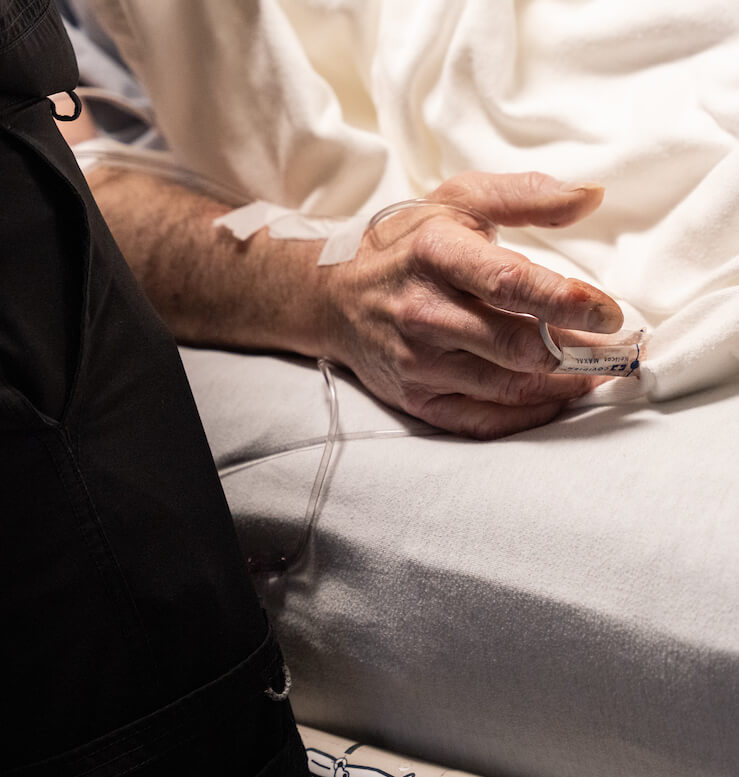
Out of options
“We had a seriously ill patient with COVID and we were struggling to find a bed to transfer them to a higher level of care,” said Kris Garman, Director of Patient Care, Redwood Falls. “Typically, our respiratory therapists and CRNAs manage ventilators and the propofol drips, but they were running on no sleep, and needed to be relieved. Meanwhile, it was becoming clear that we were going to need to keep the patient in Redwood Falls.”
That’s when Kris Garman phoned a friend.
“I knew our EMS team manages propofol drips when they transfer patients from our facility – that’s part of their scope,” said Garman. “So I called Lewis Louwagie, EMS manager in Redwood Falls, and said ‘Lewis, we need to put our brains together.’”
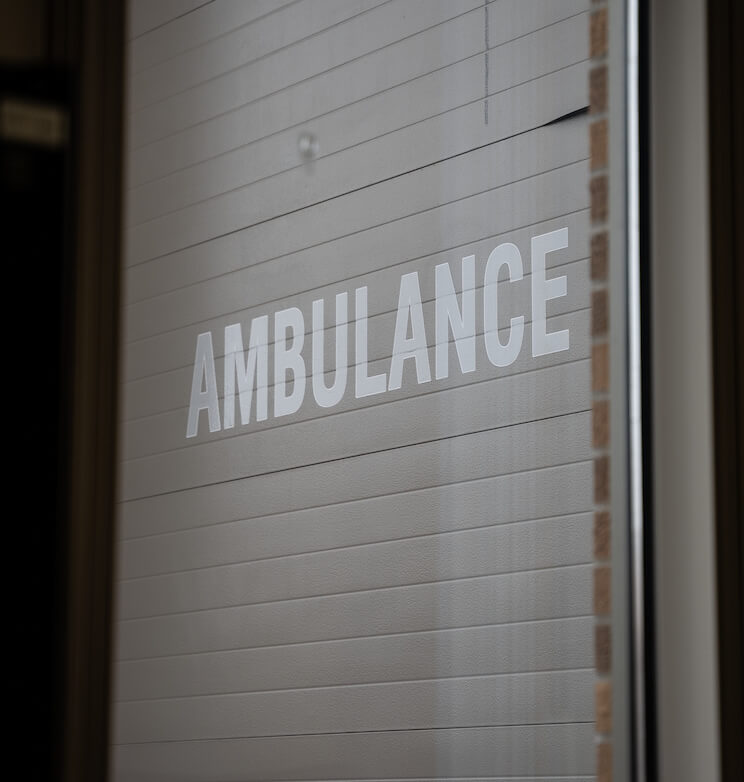
Gave me goosebumps
“When I got the call from Kris, I told her ‘We’d love to help,’” Louwagie said. Under the direction of the physician and RN caring for the patient, Louwagie and another paramedic settled in for what would be a 9-hour shift to help an exhausted team. “The collaboration was pretty amazing,” he said. “And it allowed the ER team to continue treating patients with everything else that was happening that day.”
“Seeing our teams pull together to care for this patient truly gave me goosebumps” said Garman. “We talk a lot about being one CentraCare, but this demonstrated how we’re all on the same team and the amazing things we can do for patients.”
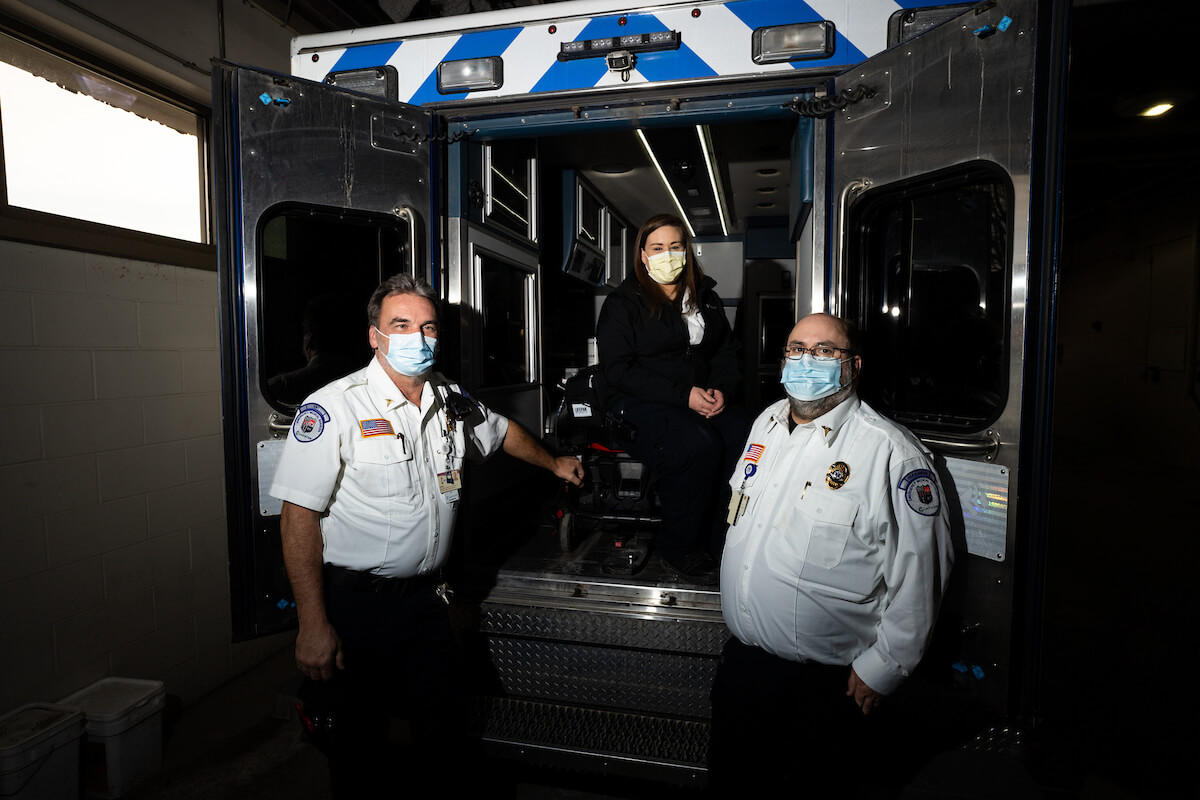
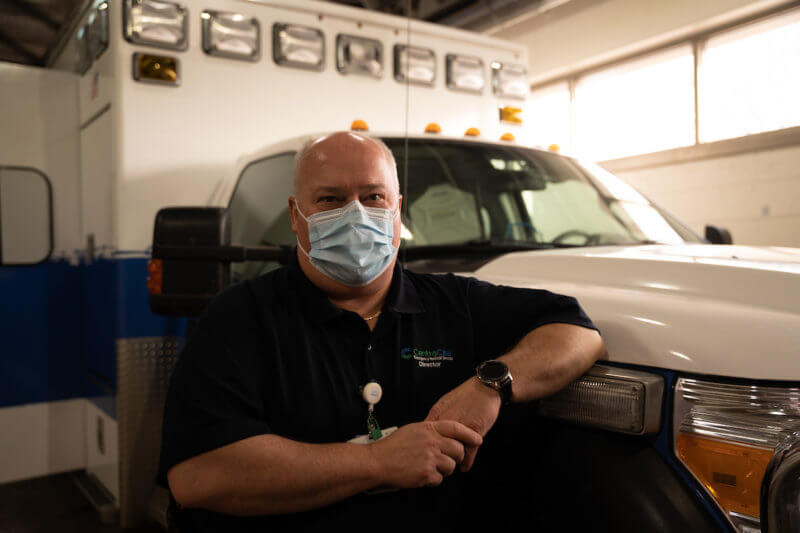
A new standard
Bradly Hanson, EMS Director for CentraCare, loved the collaboration, which essentially took CentraCare’s Rapid Response Team concept and put it on wheels – literally. “When Lewis called to tell me about the plan he and Kris put into action, I thought it was fantastic,” said Hanson. “It demonstrated how our EMS crews can serve as a mobile lifeline for care teams.” Leaders quickly formalized the ‘Rapid Emergency Team’ protocol so any team could request help from EMS when they were faced with these types of situations.
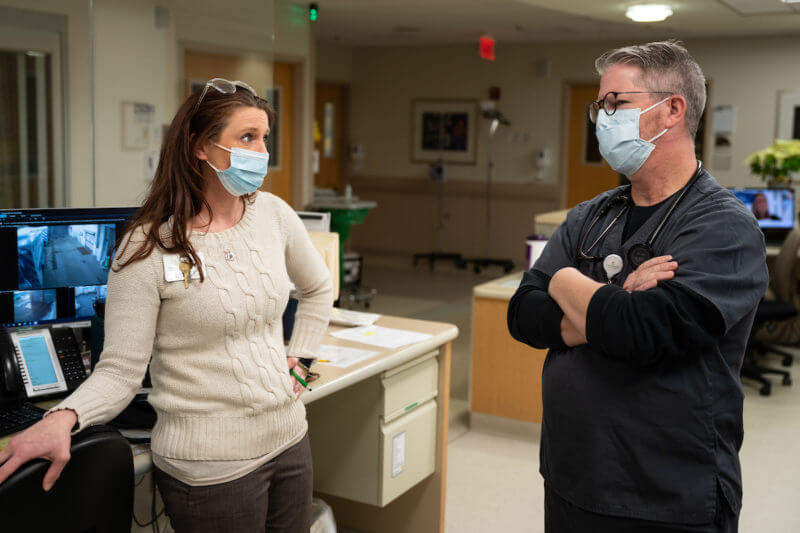
They stepped up
Once established, Rapid Emergency Teams were activated about 20 times across the region. In Willmar, Jess Delzer, RN, Director of ETC, ICU and Behavioral Health at Carris Health-Rice Memorial Hospital, recalls activating RETs during some of their most challenging times. “We had a two-week stretch that was really tough,” she said. “We were short staffed and trying to care for five acutely ill, vented patients at the same time. Having EMS come in to help our nursing team was vital to getting through it all. They really stepped up.”


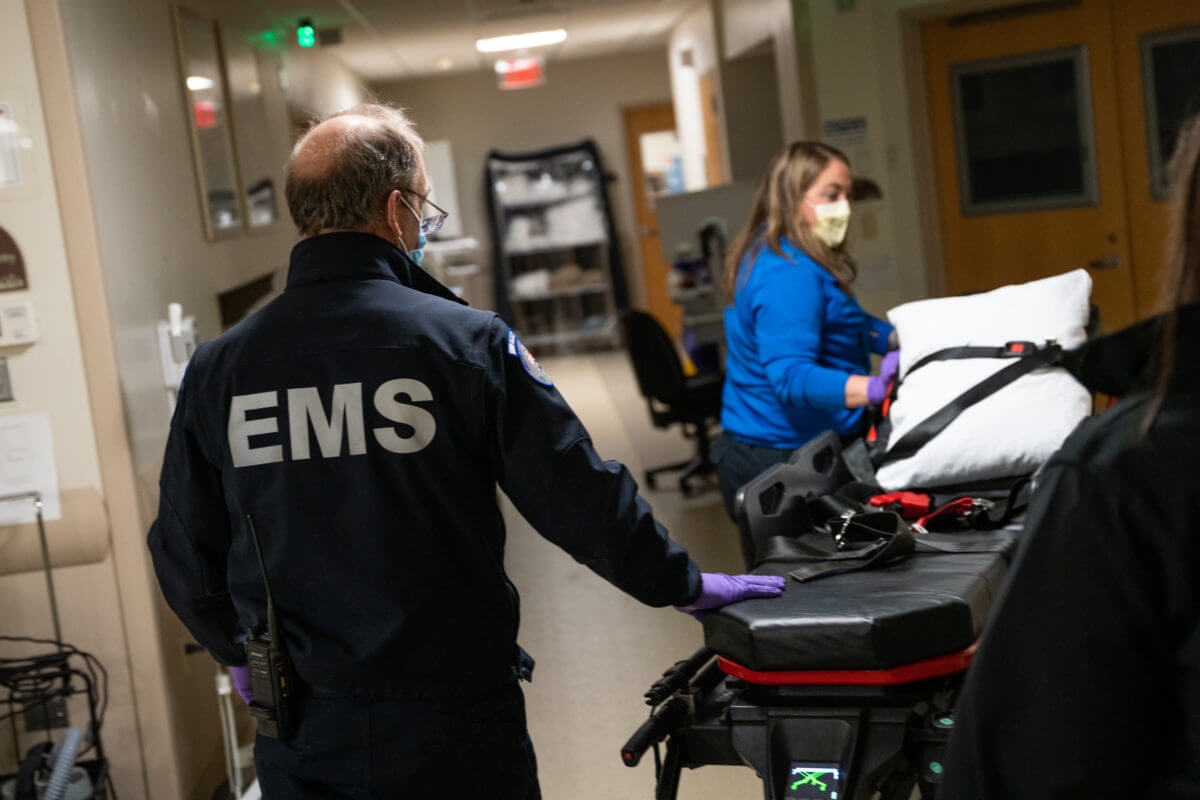





Wow… so so proud of the EMS teams and hospital teams: asking for help, thinking creatively, reaching out to offer help. I have goosebumps. Thank you thank you.